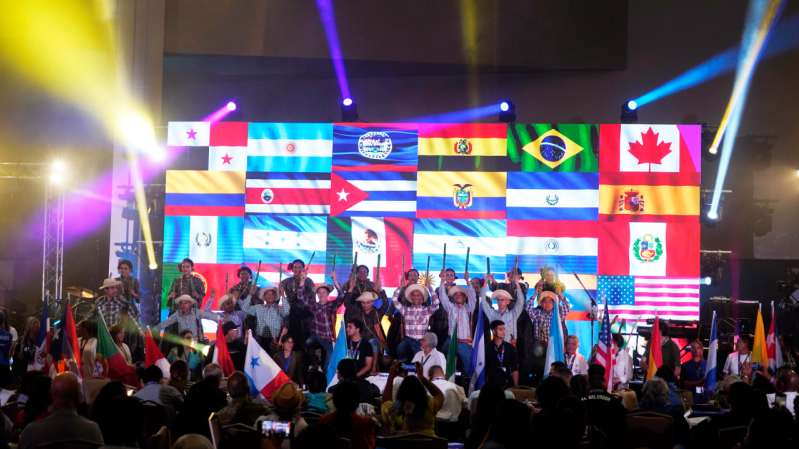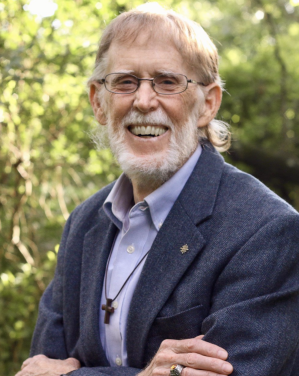
Veteran mission leader Dr. William (Bill) Taylor called on the Latin American evangelical community to prioritize serious research, locally rooted theological education and better infrastructure to support missionaries, as the region’s global role in missions continues to grow.
Taylor, former director of the World Evangelical Alliance’s Mission Commission, offered his reflections during an interview with Christian Daily International at the COMIBAM2025 missions congress in Panama City.
Now 84, Taylor has spent a lifetime in missions, beginning as the son of missionaries in Costa Rica. From his own service in Central America to his three decades of leadership in global evangelical missions, Taylor has witnessed the evolution of the Latin American missions movement from its early stirrings to its current third generation of leaders. “I’ve been privileged to see the global family of Christ in movement—the mission movement—go through massive transitions,” he said.
His message to Latin America’s church today is: if the region is to mature as a true global missions force, it must invest in its own thought leadership, practical training systems, and meaningful support for those in the field.
The strength—and limitations—of church-driven missions
Taylor credited the vitality of the Latin American missions movement to the initiative of local churches rather than traditional mission agencies. “Its first major period of history, over the past 30-plus years, has been driven by the Spirit of God working in churches,” he said. In countries like Guatemala, Paraguay or Peru, it has often been grassroots believers—pastors, lay leaders, and small congregations—who carried the burden to send missionaries.

However, Taylor cautioned that this strength can also be a limitation. “There aren’t the mechanisms of missional infrastructure for the volunteers and churches to connect to,” he said. The lack of robust mission agencies, coordinated training centers, and systems of pastoral or member care leaves many missionaries ill-prepared for the realities they face in cross-cultural contexts.
While Brazil has become an exception—with a strong network of agencies, theological programs, publications, and trained mobilizers—other countries have struggled to replicate such models. “Brazil produces about 50 books on missions every year,” Taylor said. “They have infrastructure, professors, trainers, and a deep sense of missional identity. That’s not the case in much of Latin America.”
COVID-19 further disrupted the fragile landscape. Mission training programs in many countries either shut down or shifted entirely online. “Online is fine,” Taylor said. “But most of these centers were never designed to be online-only. The relational and spiritual formation that comes in community is harder to replicate.”
Urgent need for research on attrition and infrastructure
Taylor believes that Latin America must prioritize research—particularly in the area of missionary attrition. “We need a very serious study of why missionaries are coming home early,” he said. “And I mean early—not because their call changed, but because they were unprepared, unsupported, or wounded.”
He shared stories of Latin American missionaries who spent less than two years on the field—often without adequate language acquisition or cultural training. “Two years in North Africa, and they called it a church plant? No. It was two years of confusion, and a painful return,” he said. “These are preventable exits.”
Such patterns are not just discouraging—they are costly, both spiritually and financially. “Every premature return represents lost investment, lost momentum, and often, a broken spirit,” he said. “If we had stronger systems of missionary care, better field training, and more preparation of sending churches, many of these stories could be rewritten.”
He also called for mapping the actual scope of Latin America’s missionary force. “Nobody knows how many missionaries are out there. Nobody knows how many are short-term, how many are midterm, how many are staying long enough to learn, adapt, and thrive,” Taylor said.
He noted that research into sending structures, pastoral support systems, and church mobilization is just as vital. “Maybe 10 percent of Latin American churches have a serious, sustained interest in global missions,” he estimated. “Even fewer have a well-defined missions program.”
Theology for the region, from the region
For Taylor, Latin American missions cannot rely solely on imported theological frameworks. “We need production of biblical and theological foundations for mission written in Spanish or Portuguese—not translated from English,” he said. “As good as Chris Wright is, and he’s a personal friend, he’s still a Brit.”
He praised the recent publication of a Portuguese-language book on biblical foundations of mission by Brazilian missiologist Bertil Ekström and urged its translation into Spanish for wider use across the region. “This is the kind of literature that needs to form the backbone of seminary programs, Bible institutes, and local church training efforts,” he said.
Taylor warned against a shallow theology of mobilization—what he called “a lot of foam.” “It looks bubbly and exciting, but there’s not much substance underneath. We need more than slogans—we need substance.”
Listening to a new generation
Taylor, who now serves as a mentor and consultant through Taylor Global Consult and the Crux Institute, sees great potential in the emerging generation of mission leaders.
“There are over 300 young people here at COMIBAM,” he said. “Many of them are attending their first congress. Some have never been to Panama, never been to a gathering of this scale. That’s significant.”
He urged older leaders to create spaces for intergenerational dialogue. “We need a colloquium that brings together three generations—veteran missionaries, middle-tier leaders managing operations, and younger creatives. They should ask together: What are the new questions? What are the new challenges?”
Taylor is particularly concerned with understanding the worldview of Latin America’s rising generation. “What are the 18 to 29-year-olds asking? How are they wrestling with philosophical pluralism, artificial intelligence, gender identity, and cultural shifts?” he asked. “These are the kinds of questions that demand serious engagement.”
From unequal partnerships to mutual trust
Taylor also addressed the shifting dynamics between Latin American missionaries and Western agencies. “In the first generation, Latin Americans were joining American agencies where English was dominant, and the dollar was the main currency,” he said. “That created power imbalances—visas and money often determined who led and who followed.”
Today, he believes maturity means redefining partnerships. “It’s not about one side having all the answers. It’s about mutual respect and value-sharing,” he said. He recounted a recent partnership meeting where a Latin American leader told his U.S. colleagues, “We did not come here for your money. We want to know who you are.” The ensuing conversation was deeply personal and built long-lasting trust.
That kind of posture, Taylor said, is the way forward.
A hopeful path forward
Despite structural weaknesses, funding challenges, and theological gaps, Taylor is optimistic. “I’m encouraged. There’s a lot of complex salsa here,” he said with a smile. “Some spicy young peppers, mature potatoes, tough meat, tender meat—it’s a rich mix.”
He hopes COMIBAM will continue to grow into a convening force across the region. “It’s a fragile structure, but it still has the authority to convene,” he said. “It needs to convene research-informed, Spirit-led, cross-generational spaces where the region can listen, learn, and lead.”
Looking ahead, he envisions a Latin American church deeply rooted in its own theological vision, equipped with research-driven strategy, and supported by robust structures. “If that happens,” he said, “Latin America won’t just participate in global mission—it will help shape its future.”
As he reflects on nearly 60 years of ministry, Taylor concludes by expressing his gratitude to God for His continued faithfulness: “I’m thankful to be here. The Lord is still at work. And this—this is His vineyard.”





